8 Things North Carolina Homeowners Should Do If They Spot A Turtle
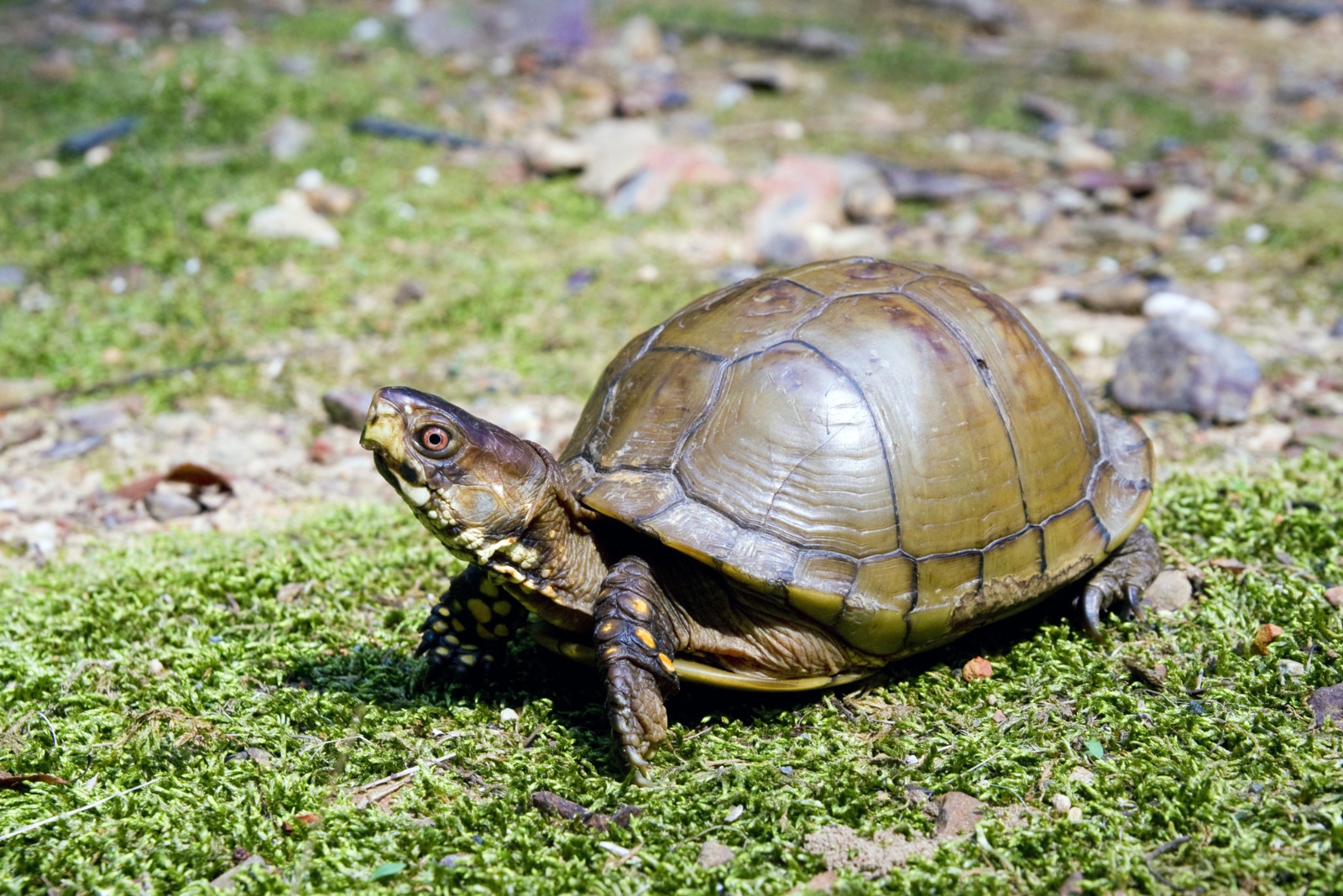
Spotted a turtle wandering in your North Carolina yard? I’ve had a few surprise encounters myself, and they’re always a delight—but they also come with responsibilities.
Taking the right steps keeps both the turtle and your property safe. A little care ensures these visitors remain welcome without causing trouble.
1. Observe From A Safe Distance

Turtles can feel threatened when humans get too close, especially snapping turtles with powerful jaws. Keep at least several feet away to watch without causing stress.
Many North Carolina homeowners don’t realize that even smaller turtles can bite when scared. Watching from afar lets you enjoy the moment while respecting wildlife boundaries.
Grab your phone or camera to capture the experience from a distance instead of reaching out to touch.
2. Identify The Species If Possible

North Carolina hosts over a dozen turtle species, from painted turtles to diamondback terrapins. Knowing which type you’ve found helps determine the best action.
Box turtles have dome-shaped shells and often wander through yards, while aquatic turtles need water nearby. Take a photo to compare with online guides or wildlife resources.
Some species are protected by law in North Carolina, making identification even more important for conservation efforts.
3. Never Relocate It Far Away
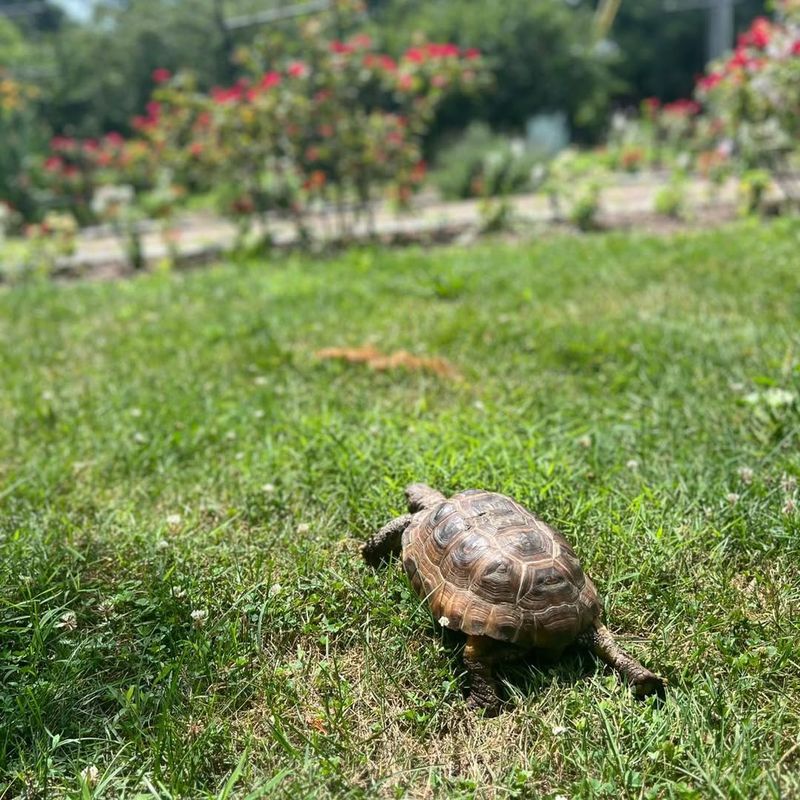
Turtles have home territories they know well, and moving them far away causes confusion and danger. If a turtle needs moving, only relocate it a short distance in the direction it was heading.
North Carolina box turtles can spend their entire lives in just a few acres. Taking them elsewhere disrupts their survival instincts and access to food sources.
Respect their natural navigation by helping them continue their journey safely.
4. Check For Injuries Or Illness
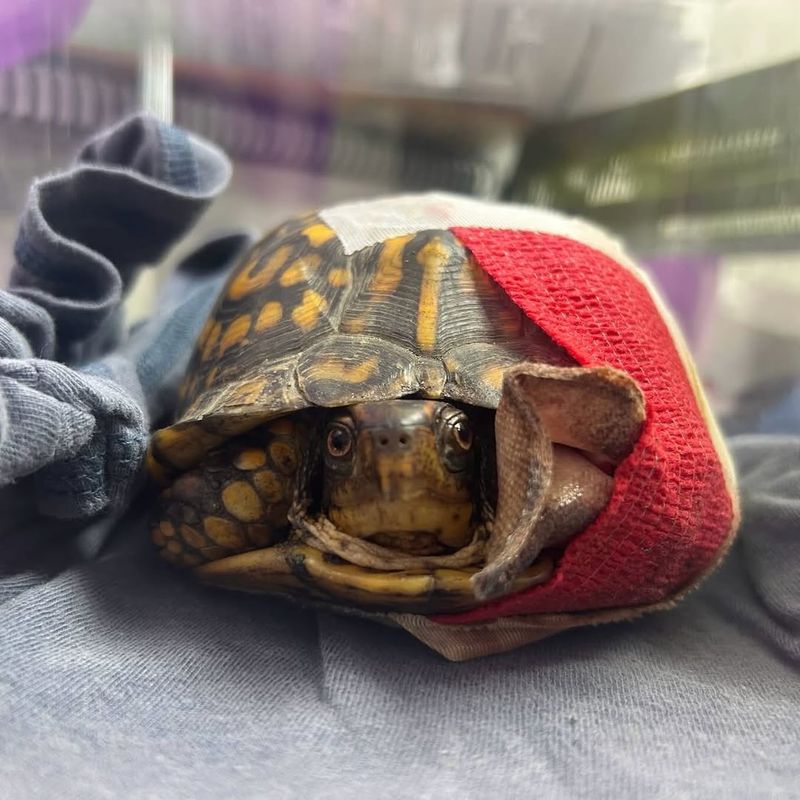
Look for cracks in the shell, bleeding, discharge from eyes or nose, or unusual lethargy. Injured turtles need professional wildlife rehabilitation to survive.
Sometimes North Carolina turtles get hit by cars or attacked by predators, leaving wounds that aren’t immediately obvious. A turtle moving very slowly or not retracting into its shell might be sick.
Contact a local wildlife rehabilitator if you notice any health concerns.
5. Keep Pets And Children Back
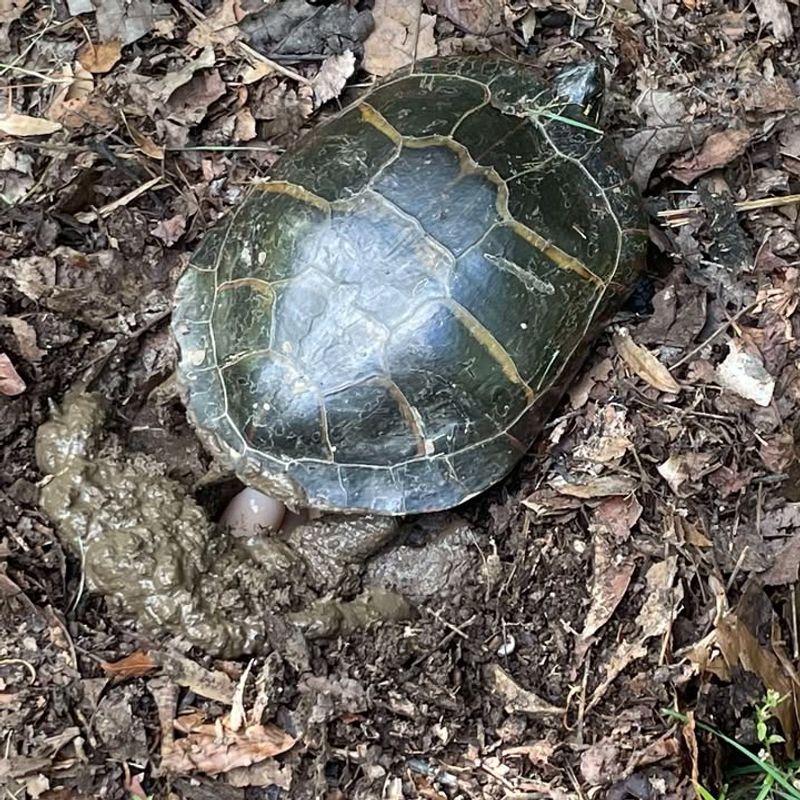
Dogs and cats often see turtles as toys or threats, which can lead to injuries for both animals. Curious children might accidentally harm turtles by handling them roughly.
Snapping turtles in North Carolina can deliver painful bites, especially when defending themselves. Teach kids to appreciate wildlife from a respectful distance rather than touching.
Supervise all interactions and use the moment as an educational opportunity about local ecosystems.
6. Provide Safe Passage Across Roads
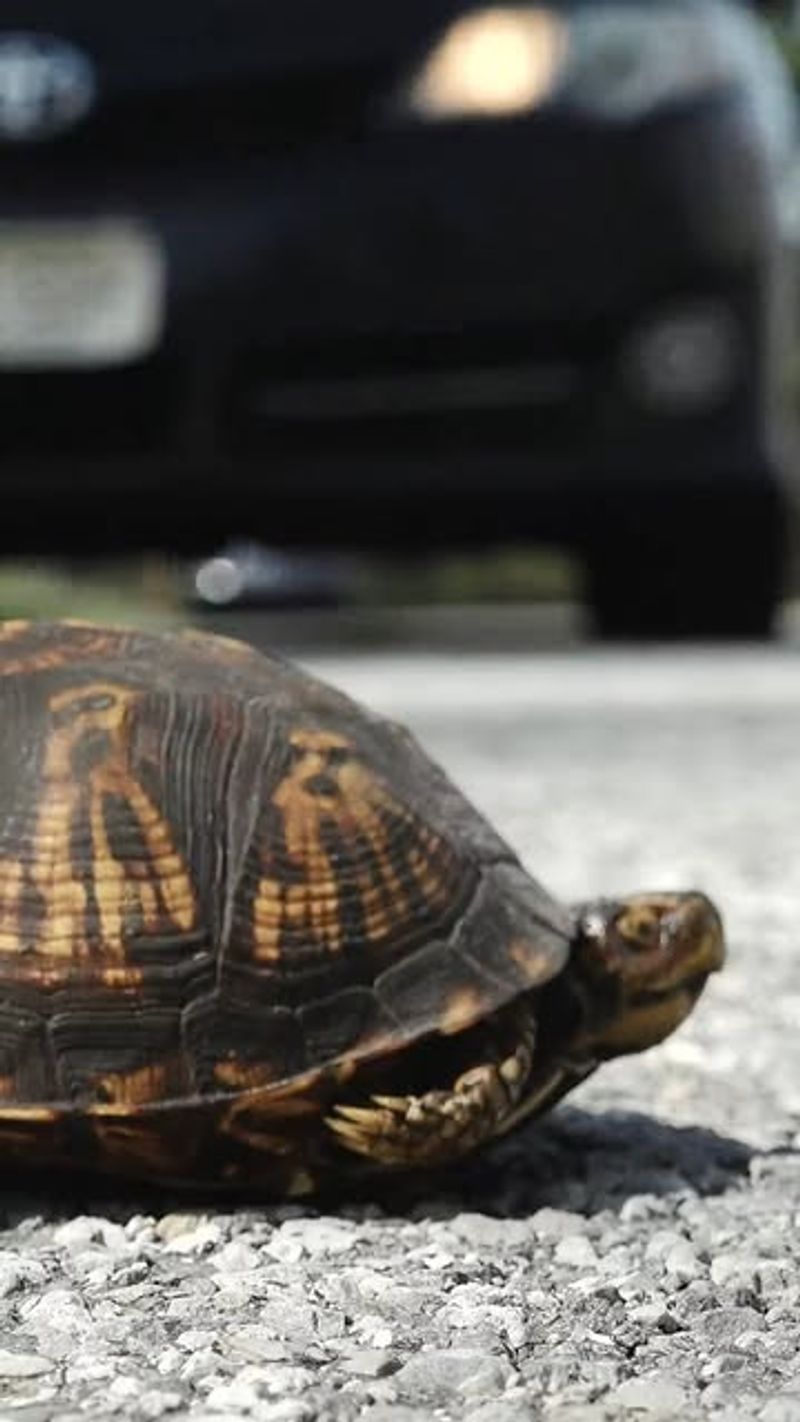
Road mortality is a major threat to North Carolina turtles, especially during nesting season when females travel to lay eggs. If you spot one crossing, help it reach the other side safely.
Always move turtles in the direction they were heading, never backward. Use a shovel or cardboard for snapping turtles, holding them by the rear of the shell.
Turn on hazard lights and watch for traffic to protect yourself too.
7. Avoid Disturbing Nesting Sites
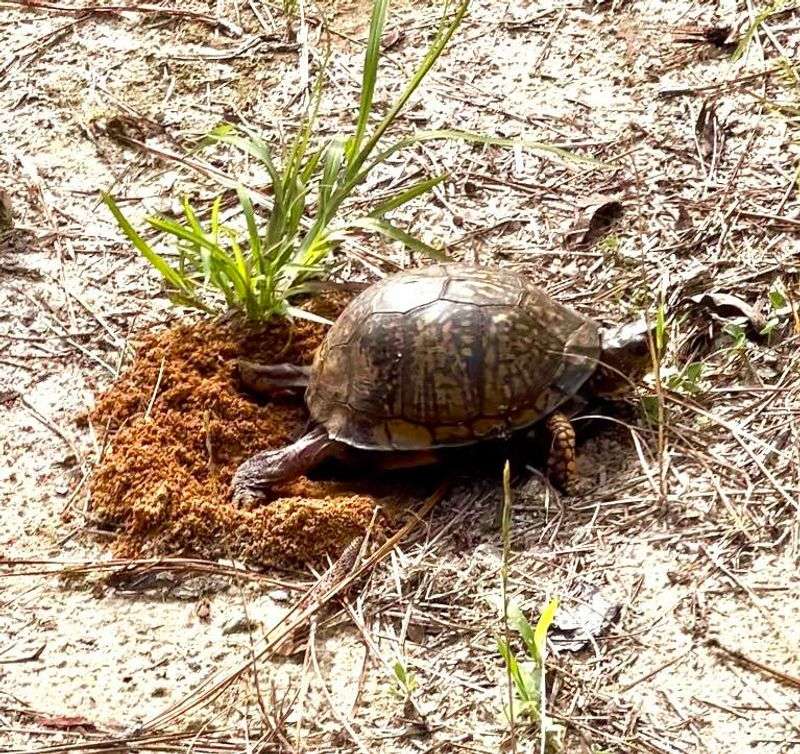
Female turtles dig nests in sandy or soft soil to lay eggs, usually in late spring and summer. North Carolina homeowners sometimes find these nests in gardens or driveways.
Disturbing a nest can destroy eggs or cause the mother to abandon the site. Mark the area with stakes and flagging tape to avoid accidentally mowing or digging there.
Nests take two to three months to hatch, so patience protects the next generation of turtles.
8. Contact Wildlife Experts When Needed
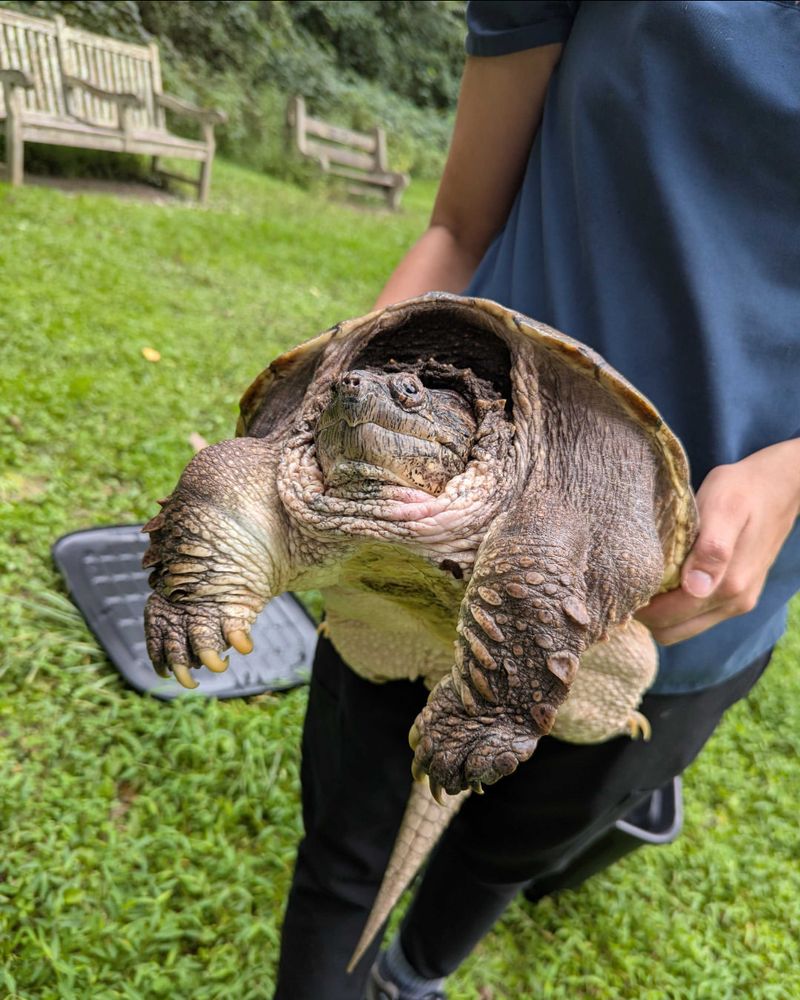
Sometimes situations require professional help, like injured turtles or species you can’t identify. North Carolina has wildlife hotlines and rehabilitation centers ready to assist.
The NC Wildlife Resources Commission offers guidance for homeowners dealing with wildlife encounters. Local nature centers and veterinarians specializing in exotic animals can also provide support.
Never attempt to keep wild turtles as pets, as this is illegal and harmful to the animal.






